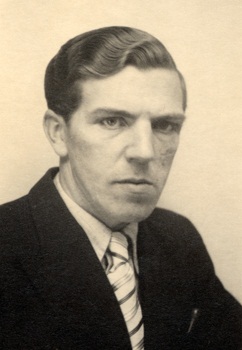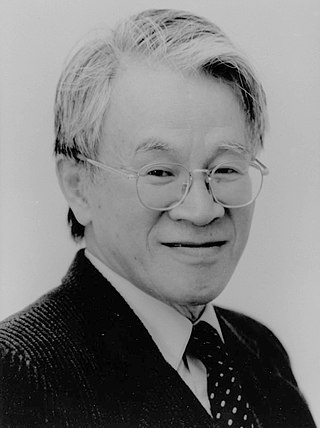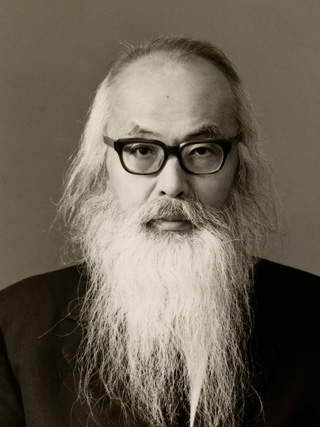
Kenneth Joseph Arrow was an American economist, mathematician, writer, and political theorist. Along with John Hicks, he won the Nobel Memorial Prize in Economic Sciences in 1972.

Gérard Debreu was a French-born economist and mathematician. Best known as a professor of economics at the University of California, Berkeley, where he began work in 1962, he won the 1983 Nobel Memorial Prize in Economic Sciences.

Harold Hotelling was an American mathematical statistician and an influential economic theorist, known for Hotelling's law, Hotelling's lemma, and Hotelling's rule in economics, as well as Hotelling's T-squared distribution in statistics. He also developed and named the principal component analysis method widely used in finance, statistics and computer science.

Trygve Magnus Haavelmo, born in Skedsmo, Norway, was an economist whose research interests centered on econometrics. He received the Nobel Memorial Prize in Economic Sciences in 1989.

Antoine Augustin Cournot was a French philosopher and mathematician who contributed to the development of economics.

John Brian Taylor is the Mary and Robert Raymond Professor of Economics at Stanford University, and the George P. Shultz Senior Fellow in Economics at Stanford University's Hoover Institution.

Michio Morishima was a Japanese heterodox economist and public intellectual who was the Sir John Hicks Professor of Economics at the London School of Economics from 1970 to 1988. He was also professor at Osaka University and member of the British Academy. In 1976 he won the Order of Culture.

Hirofumi Uzawa was a Japanese economist.
Sanford "Sandy" Jay Grossman is an American economist and hedge fund manager specializing in quantitative finance. Grossman’s research has spanned the analysis of information in securities markets, corporate structure, property rights, and optimal dynamic risk management. He has published widely in leading economic and business journals, including American Economic Review, Journal of Econometrics, Econometrica, and Journal of Finance. His research in macroeconomics, finance, and risk management has earned numerous awards. Grossman is currently Chairman and CEO of QFS Asset Management, an affiliate of which he founded in 1988. QFS Asset Management shut down its sole remaining hedge fund in January 2014.
Takeshi Amemiya is an economist specializing in econometrics and the economy of ancient Greece.
Lionel Wilfred McKenzie was an American economist. He was the Wilson Professor Emeritus of Economics at the University of Rochester. He was born in Montezuma, Georgia. He completed undergraduate studies at Duke University in 1939 and subsequently moved to Oxford that year as a Rhodes Scholar. McKenzie worked with the Cowles Commission while it was in Chicago and served as an assistant professor at Duke from 1948 to 1957. Having received his Ph.D. at Princeton University in 1956, McKenzie moved to Rochester where he was responsible for the establishment of the graduate program in economics.

Leonid Hurwicz was a Polish–American economist and mathematician, known for his work in game theory and mechanism design. He originated the concept of incentive compatibility, and showed how desired outcomes can be achieved by using incentive compatible mechanism design. Hurwicz shared the 2007 Nobel Memorial Prize in Economic Sciences for his seminal work on mechanism design. Hurwicz was one of the oldest Nobel Laureates, having received the prize at the age of 90.
Marc Leon Nerlove was an American agricultural economist and econometrician and a distinguished university professor emeritus in agricultural and resource economics at the University of Maryland. He was awarded the John Bates Clark Medal from the American Economic Association (AEA) in 1969 and held appointments at eight different universities from 1958–2016. The Clark Medal is awarded to an economist under the age of 40 who “is judged to have made the most significant contribution to economic thought and knowledge”, and when the AEA appointed him as a distinguished fellow in 2012, they cited his development of widely used econometric methods across a range of subjects, including supply and demand, time series analysis, production functions, panel analysis, and family demography.
Roy Radner was Leonard N. Stern School Professor of Business at New York University. He was a micro-economic theorist. Radner's research interests included strategic analysis of climate change, bounded rationality, game-theoretic models of corruption, pricing of information goods and statistical theory of data mining. Previously he was a faculty member at the University of California, Berkeley, and a Distinguished Member of Technical Staff at AT&T Bell Laboratories.
Jacques H. Drèze was a Belgian economist noted for his contributions to economic theory, econometrics, and economic policy as well as for his leadership in the economics profession. Drèze was the first President of the European Economic Association in 1986 and was the President of the Econometric Society in 1970.
Ross Marc Starr is an American economist who specializes in microeconomic theory, monetary economics and mathematical economics. He is a professor at the University of California, San Diego.
In economics, non-convexity refers to violations of the convexity assumptions of elementary economics. Basic economics textbooks concentrate on consumers with convex preferences and convex budget sets and on producers with convex production sets; for convex models, the predicted economic behavior is well understood. When convexity assumptions are violated, then many of the good properties of competitive markets need not hold: Thus, non-convexity is associated with market failures, where supply and demand differ or where market equilibria can be inefficient. Non-convex economies are studied with nonsmooth analysis, which is a generalization of convex analysis.

Convexity is a geometric property with a variety of applications in economics. Informally, an economic phenomenon is convex when "intermediates are better than extremes". For example, an economic agent with convex preferences prefers combinations of goods over having a lot of any one sort of good; this represents a kind of diminishing marginal utility of having more of the same good.
Hukukane Nikaido was a Japanese economist.
In economics, a random utility model (RUM), also called stochastic utility model, is a mathematical description of the preferences of a person, whose choices are not deterministic, but depend on a random state variable.










